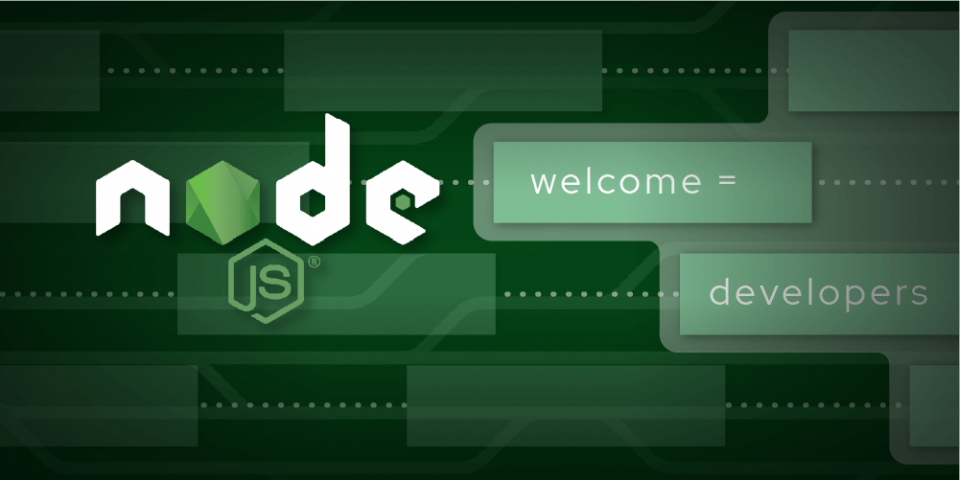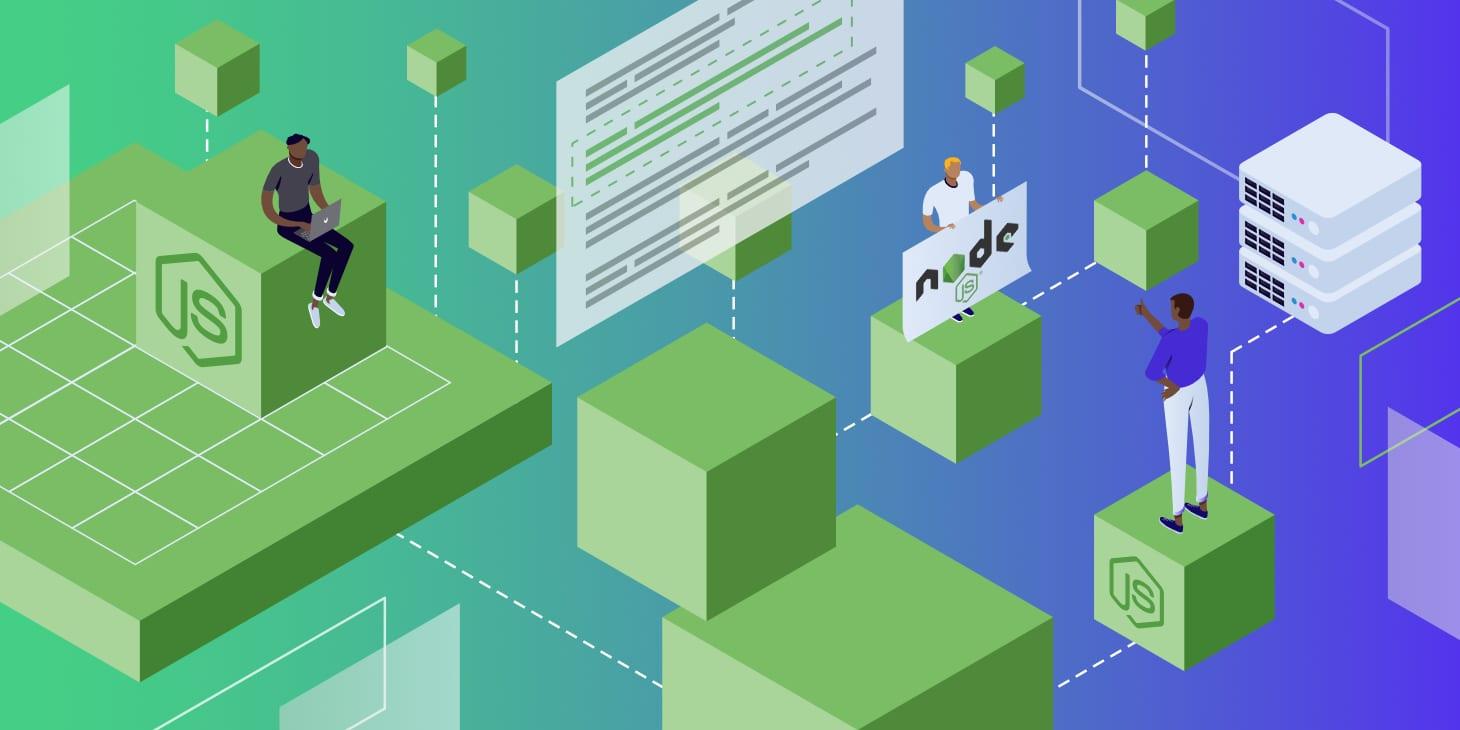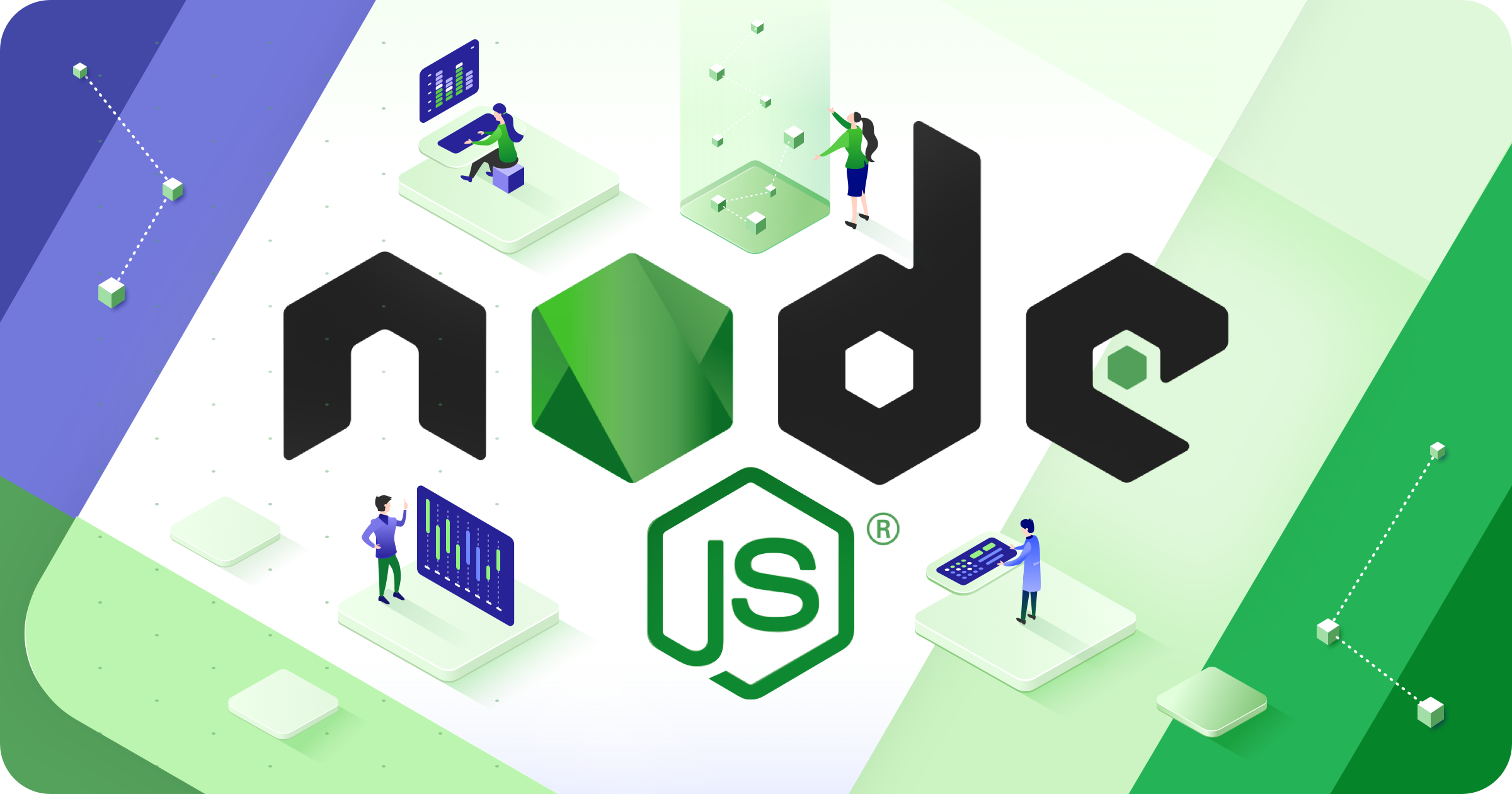Node.js is an internet-based runtime environment for building network-ready and server-side applications that are written in JavaScript. The event-driven nature of the platform allows developers to handle incoming requests more efficiently, speeding up the development process.
To discuss Node.js and its common use cases, read the rest of this article. Then, we'll explore the differences between Node.js and npm. Finally, we'll cover how to install Node.js on Windows, macOS, and Linux in a step-by-step tutorial.
How Does Node.js Work
What makes Node.js different is the event loop and non-blocking I/O operations. While this may sound like a lot of jargon, it's actually pretty simple. An event loop is an operating system process that waits for an event and then performs actions in response to these events. In Node.js, the main function waits for an event, while non-blocking I/O operations are what happen concurrently with the waiting and other activities in the program (such as serving HTTP requests) that allow other threads to perform their tasks without blocking each other. Node.
Because Node.js uses the non-blocking I/O model and asynchronous events, it can handle more requests than a traditional server when faced with a large amount of concurrent visitors. This framework is great for handling high loads and reducing downtime, but its inability to work with intensively CPU-based tasks may hinder its performance eventually.

Structure
As previously mentioned, the Node.js thread doesn’t wait for a response and moves on to process a subsequent request. On asynchronous architecture, the event loop operates in an event-driven manner. Once it has received a response from the previous API call, it puts the reply in the event queue and continues to await further requests.
Node.js has a single-threaded event loop, which allows requests to be executed in rapid succession and responses to be returned immediately. Node’s primary use is to create fast web servers, but it can also be used for other server applications that can benefit from its speed and ease of development.
In contrast with asynchronous software, synchronous architecture performs one task at a time. Therefore, the event loop will only move to the next one after the previous task is finished.
When can you use Node.js?
Node.js is a great fit to perform data-intensive tasks or real-time analytics since it has asynchronous architecture and non-blocking I/O features.
Node.js can handle chat apps, as it allows for two-way communication between servers and clients using push technology over web sockets. This communication allows the server to maintain fewer threads for each open connection due to Node.js's single-threaded asynchronous architecture.
Node.js is a platform built on Chrome's JavaScript runtime for easily building fast, scalable network applications. Node.js uses an event-driven, non-blocking I/O model that makes it lightweight and efficient, perfect for data streaming. The framework can handle the uploading of files while they're in progress without a hitch; it helps queues the data and distributes it to different parts of the application almost immediately.
Node.js can handle a massive amount of client connections, allowing for easy development and operation of server-side web applications. It is often used as an API gateway that accepts incoming requests from the client and serves content from other servers in its place. When used as an API proxy, it must be configured to allow both public and private methods through while restricting requests to its own backend servers or those it has installed itself.
Because of the event loop feature in Node.js, it's possible to create a live dashboard that displays the status of multiple services and websites. Consumers can easily see whether or not external services are up and running while internal services can communicate with each other at high speeds.
Node.js can be used to build a REST API that allows you to tap into its many packages and frameworks, such as Express.js, Koa.js, and many others. The technology is popular because it allows for a quick yet reliable way of building an application.
Single Page Applications (SPAs) allow for an app-like experience that can be used to boost customer loyalty and retention. SPAs load faster than most older web apps, as they only need to load one page at a time.
The language can be used to develop a broad range of products: from simple tools to high-performance applications. Node.js supports both frontend and backend development.
- Want to use the same reusable code across the frontend and backend? With Node.js, you can.
- Node.js's asynchronous and event-driven architecture allows a programmer to accomplish both parallelism and concurrency, improving efficiency by reducing context switching between different languages.

Best Node.js Hosting
To run Node.js applications, many businesses opt for virtual private servers (VPS) or dedicated servers. However, there is a third option that can provide the flexibility you need and your competitors lack: the cloud.
To begin, we considered hosts that support Node.js. To make our list, those providers had to offer plentiful developer tools and technical support and also make it easy to deploy, manage, and scale your Node.js apps with integrated Git and Heroku deployment. Moving down the list, we screened providers against customer reviews for quality of service.
How to Choose a Node.js Host
To find a good Node.js Host, first analyze the customer's current infrastructure and business requirements, searching for the most common limitations and functionality gaps. Fill in these gaps by choosing from among a wide range of options offered by numerous providers with varying levels of experience and expertise. Compare different solutions while weighing their strengths and weaknesses against your own needs to choose the one which best fits your budget requirements and technical objectives.
Choosing right hosting provider can be very tricky, because there are thousands of them out there today. Be ready to research many web hosting companies before selecting one that offers all the features you're interested in at an affordable price point.
Best Node.Js Hosting Providers
Stablepoint
Node.js is a popular open-source JavaScript runtime environment that is used to build scalable web applications. Stablepoint is a web hosting provider that specializes in hosting Node.js applications. They offer a variety of features and tools that are specifically designed for Node.js, such as:
- Node.js optimized servers: Stablepoint's servers are optimized for Node.js, so your Node.js applications will run quickly and efficiently.
- Unlimited bandwidth: Stablepoint offers unlimited bandwidth, so you don't have to worry about your Node.js applications being slowed down by high traffic.
- Free SSL certificate: Stablepoint provides a free SSL certificate with all of their plans, which helps to keep your Node.js applications secure.
- 24/7 support: Stablepoint offers 24/7 support, so you can get help with any problems you may have with your Node.js applications, even if they occur in the middle of the night.
Verpex
Veprex stands out as an exceptional hosting provider for Node.js, offering a robust and optimized platform that caters specifically to the unique demands of Node.js applications. With a strong emphasis on speed, reliability, and advanced server configurations, Verpex ensures that Node.js projects run seamlessly and deliver superior performance.
Dedicated Now
As Node.js gains momentum for its server-side capabilities, Dedicated Now emerges as a trusted partner, offering the essential tools and resources to excel in the dynamic world of Node.js hosting. With a focus on empowering businesses with top-notch hosting solutions, Dedicated Now is committed to enabling their clients' Node.js applications to reach new heights of performance and success.

Conclusion
Node.js is an open-source, cross-platform JavaScript runtime environment used to develop scalable server-side and networking applications. It uses the Google V8 JavaScript engine, which is well known for its speed in executing code compared with alternative engines. Node.js is an open-source, cross-platform language that helps developers develop fast and efficient networking applications capable of running on distributed systems with ease. The platform allows for data streaming and real time applications such as chat rooms and live broadcasting.
To install Node.js on Windows and macOS, follow the instructions in this article. Linux users can find installation instructions via a Google search with the keywords "linux node js installation" or through one of these articles . We hope that this article has helped you understand Node.js. To learn how to use Node.js, read this guide . You can also find helpful resources by searching for "node js tutorial" or visiting these other articles .

Nadejda Milanova
An experienced Content creator in the field of Search Engine Optimization (SEO) and WordPress. A true proffesional with a Master's degree focused on journalism.
Read more by Nadejda Milanova





